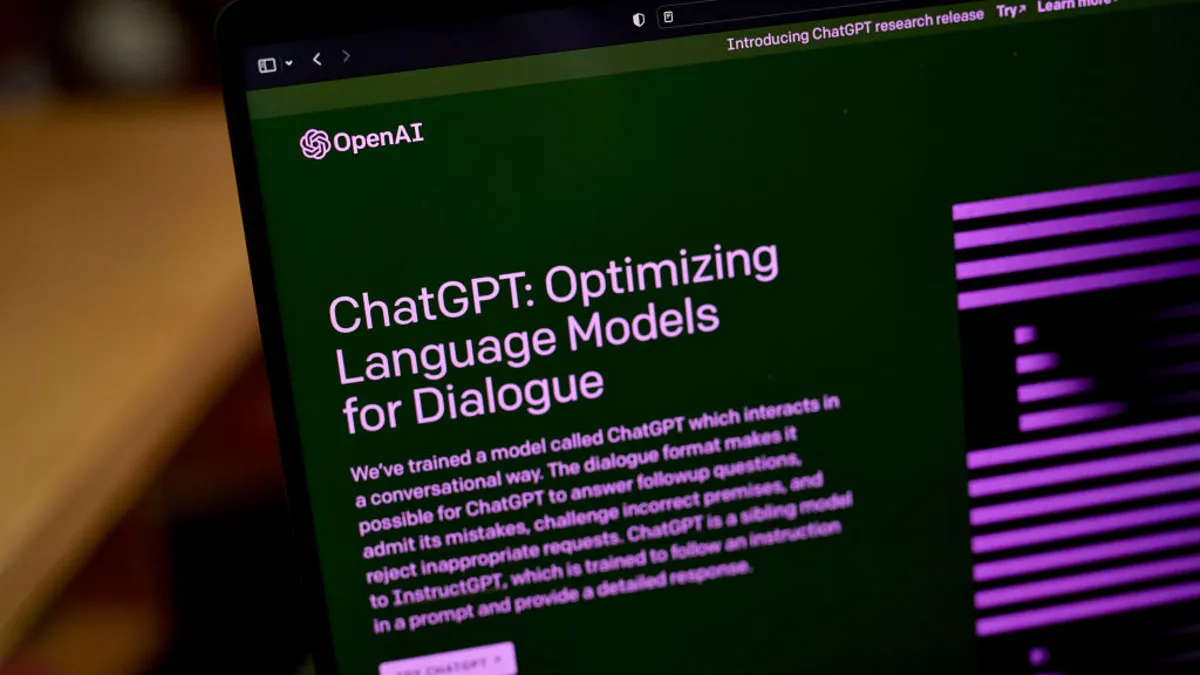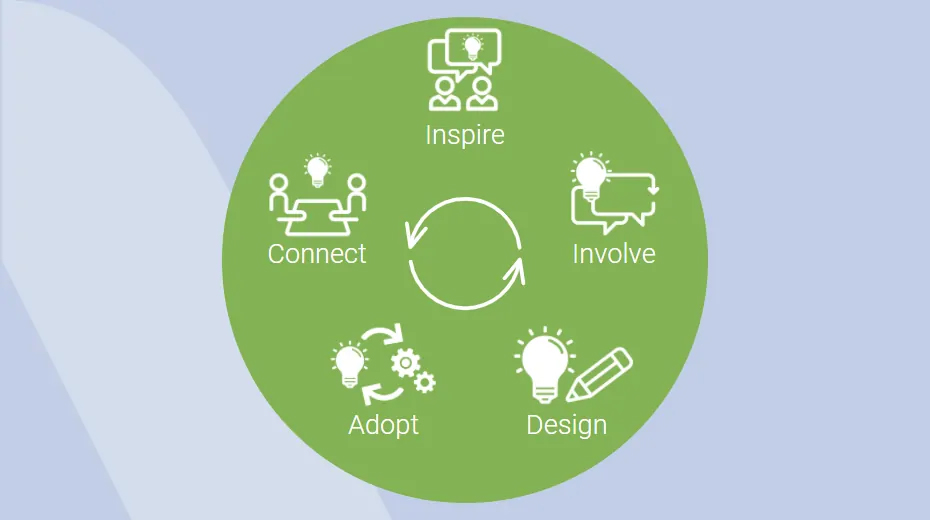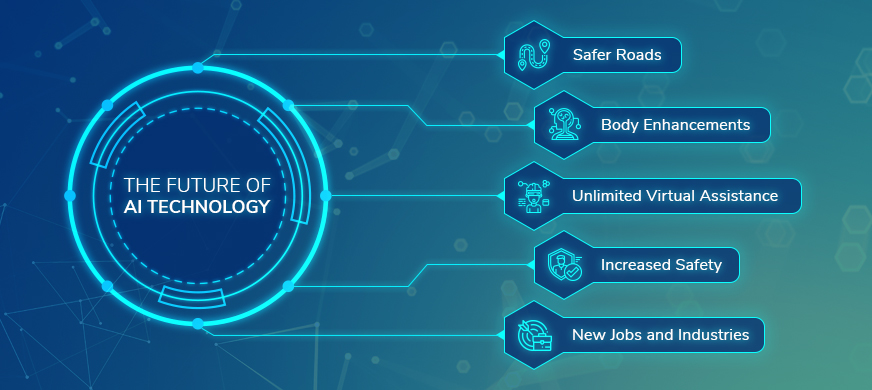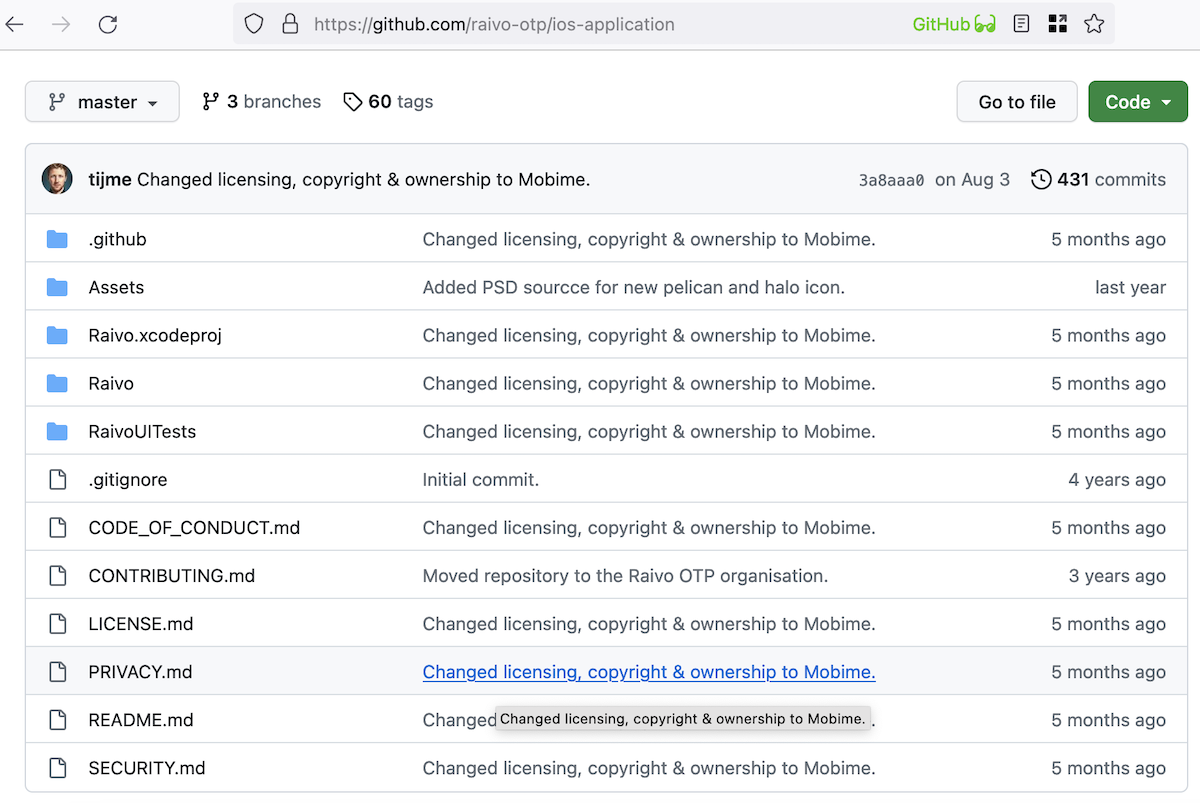The Power of Intelligent Enterprise Search for Innovation

The past few months have been marked by a flurry of excitement surrounding OpenAI's ChatGPT release. Its extraordinary capabilities have captured widespread attention and sparked discussions about the potential of artificial intelligence. With tech giants such as Microsoft, Google, and Meta entering the arena, we can anticipate an exhilarating but possibly tumultuous journey ahead. ChatGPT has set a new standard for computing capabilities, and it will be fascinating to observe what innovations and developments arise in the AI field in the near future.
The central pillar of ChatGPT's capabilities is its employment of large language models (LLMs), which encompasses a particular generative LLM responsible for enabling the system. While LLMs have been around for some time, their innovative capabilities and scope are rapidly evolving at an incredible pace. The rate of progress in this area is truly astonishing, with new breakthroughs being made continuously, leading to further advancements in the field of language models.
A look within the walls of AI
In addition to ChatGPT's impressive capabilities, there is a great deal of activity taking place "within the walls," which has led to some confusion regarding the system's potential. Some individuals have erroneously portrayed ChatGPT as a competitor to Google or speculated that generative AI may replace traditional search functions, but this is far from the case.
On the contrary, these systems are designed to work in tandem, with ChatGPT complementing existing search engines by offering more sophisticated natural language processing capabilities. Ultimately, the development of ChatGPT and similar systems is not about replacing traditional search, but rather, about enhancing it and providing more advanced and intuitive ways for individuals to interact with information.
It is critical to distinguish between search and generative AI. Search aims to retrieve existing information, while generative AI and applications like ChatGPT create new content based on the LLM's training. Although ChatGPT seems similar to search because users interact with it using conversational queries in natural language and receive well-crafted responses, it is fundamentally distinct from search. ChatGPT does not retrieve information or content; rather, it generates an imperfect approximation of what it already knows, based on probabilities. In essence, ChatGPT is nothing more than a jumble of words generated through statistical inference.
Although LLMs are not intended to supplant search, they can enhance and complement the search experience. The true advantage of incorporating generative LLMs into search engines is convenience. With the ability to summarize results into a concise and easily readable format, this technology offers new possibilities for information retrieval. By bundling generative LLMs with search, we can unlock new avenues for extracting knowledge from vast amounts of data, providing users with more sophisticated and intuitive ways to access and interact with information.

A Testing Environment for AI and Language Models
Generative models that utilize LLMs are set to transform a wide range of activities, and their impact is likely to be felt for years to come. At present, the most accessible application of these models is in the synthesis of data, including compiling lists and writing summaries on common topics. These capabilities are distinct from search but can enhance the user experience by making information more easily accessible and digestible.
As the technology continues to evolve, we can expect to see specialized LLMs that cater to specific needs, leading to a splintering of the search experience. Ultimately, these advances have the potential to revolutionize how we engage with information and could transform the way we approach various tasks in the future.
Amidst the fervor surrounding generative AI, LLMs, and ChatGPT, one critical factor to consider is the role of search as a proving ground for these technologies. This is particularly true for enterprise search, where the need for accurate results and the protection of proprietary information is paramount. Unlike B2C applications, B2B and in-business applications demand a high level of precision and data security, which poses a unique challenge for the adoption of generative AI in this field. Therefore, implementing generative AI in enterprise search may require innovative approaches to overcome these challenges.
With that in mind, what does the future hold for enterprise search in 2023? Here are five key themes that will shape its evolution in the coming year.
Improved Search Experience with Language Models
Until recently, the application of LLMs to search was both expensive and cumbersome. However, this began to change last year with the integration of LLMs into enterprise search by pioneering companies. This marked a significant leap forward in search technology, delivering results that are faster, more precise, and forgiving. Yet, we are only at the beginning of this journey.
As newer and better LLMs become available, and existing LLMs are honed to achieve specific tasks, we can expect a rapid improvement in the power and capability of these models in the year ahead. Rather than merely locating a document, we will be able to pinpoint specific answers within the document. Instead of relying on specific keywords, we will retrieve information based on meaning.
LLMs will offer better results by surfacing the most relevant content, providing more focused outcomes, and communicating in natural language. Furthermore, generative LLMs hold great potential for synthesizing search results into easily comprehensible and readily accessible summaries.
Search Can Combat Knowledge Loss
Organizational knowledge loss is a significant but often overlooked issue that businesses face today. High employee turnover rates, whether through voluntary attrition, layoffs, M&A restructuring, or downsizing, often results in vital knowledge being stranded on "information islands." This challenge has been further compounded by the shift to remote and hybrid work, dramatic changes in customer and employee perceptions, and an explosion of unstructured data and digital content. As a result, knowledge management has come under immense strain.
According to a recent survey of 1,000 IT managers at large enterprises, 67% expressed concern over the loss of knowledge and expertise when employees leave the company. The cost of knowledge loss and inefficient knowledge sharing is significant, with IDC estimating that Fortune 500 companies lose approximately $31.5 billion each year by failing to share knowledge. This figure is particularly alarming, given the current uncertain economic climate. By improving information search and retrieval tools, a Fortune 500 company with 4,000 employees could save roughly $2 million per month in lost productivity.
Intelligent enterprise search is a critical tool that can help prevent information islands and enable organizations to effortlessly find, surface, and share knowledge and corporate expertise. Seamless access to knowledge and expertise within the digital workplace is essential. The right enterprise search platform can connect workers to knowledge and expertise, as well as connect disparate information silos to facilitate discovery, innovation, and productivity.
Search overcomes application splintering and digital friction
In today's workplaces, employees are inundated with tools. A recent study by Forrester found that organizations use an average of 367 different software tools, leading to data silos and disrupting processes between teams. As a result, employees spend 25% of their time searching for information instead of focusing on their job responsibilities.
This not only directly impacts employee productivity, but it also has implications for revenue and customer outcomes. The fragmentation of apps exacerbates information silos and creates digital friction through constant app switching, hampering the flow of work.
According to a Gartner survey, 44% of users made wrong decisions due to a lack of awareness of available information, while 43% failed to notice important information amid too many apps.
Intelligent enterprise search unifies employees' experiences, enabling them to access all corporate knowledge seamlessly and accurately from a single interface. This greatly reduces app switching and minimizes frustration for an already fatigued workforce while streamlining productivity and collaboration.
Search results become more relevant
Research shows that one-third of employees report that they "never find" the information they are searching for in their organization, always or most of the time. This raises questions about how they are operating and making decisions without access to the required information.
Search relevance is critical to enabling scientists, engineers, decision-makers, knowledge workers, and others to discover the knowledge, expertise, and insights they need to make informed decisions and work more efficiently. It measures how closely the results of a search relate to the user's query.
However, many enterprise search platforms lack the ability to understand the user's intent and deliver relevant search results, which can be attributed to the challenges associated with developing and fine-tuning it.
Intelligent enterprise search tools perform better in delivering relevant results compared to in-app search. But even they may struggle with challenging scenarios where the desired results are not at the top of the list. The emergence of LLMs has opened the door for vector search, which retrieves information based on meaning.
Neural search capabilities have also advanced, incorporating LLM technology into deep neural networks that provide semantic search and excellent relevance through context. Combining semantic and vector search approaches with statistical keyword search capabilities can deliver relevance in a wide range of enterprise scenarios. This step change in relevance brought about by neural search represents a significant advancement in the field, allowing computers to learn how to work with humans rather than the other way around.
Question-answering methods receive a neural boost
LLMs and semantic search capabilities have made it possible to have question-answering (QA) capabilities in the enterprise. With the help of neural search, users can extract answers to straightforward questions when those answers are present in the search corpus. This shortens the time to insight, allowing employees to get quick answers and continue their workflow without getting sidetracked on lengthy information quests.
Integrating QA into intelligent enterprise search will expand its usefulness and value, making it easier than ever for employees to find what they need. Although QA applied to the enterprise is still in its infancy, the technology is moving fast. We can expect to see more adoption of various AI technologies that can answer questions, find similar documents, and shorten the time to knowledge. This will make it easier than ever for employees to focus on their work and improve overall productivity.
The future of AI
This increased accuracy and ability in enterprise search is paving the way for even more innovation within organizations. By leveraging advanced AI technologies like neural networks and LLMs, enterprise search is becoming more powerful, providing a means for employees to interact with content and with each other, and derive meaning from those interactions.
Through intelligent enterprise search, employees are able to connect with colleagues who possess specific expertise, find relevant information and insights, and generate new ideas and solutions that may not have been possible otherwise. By breaking down information silos and creating a more interconnected knowledge base, enterprise search is becoming a vital component of innovation in the workplace.























Good article.